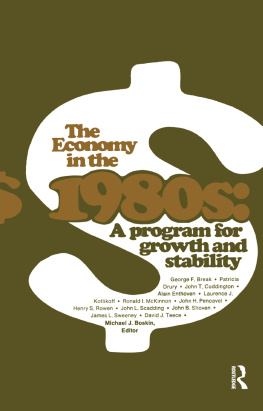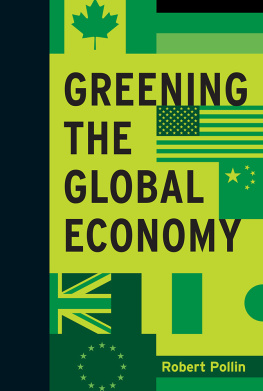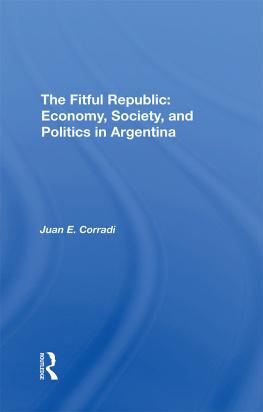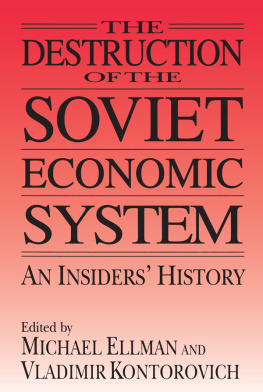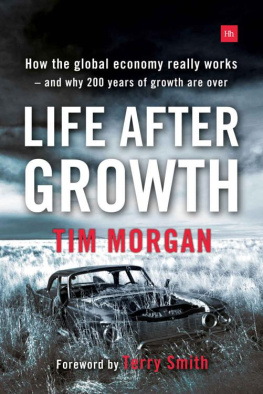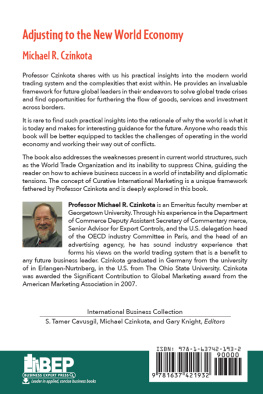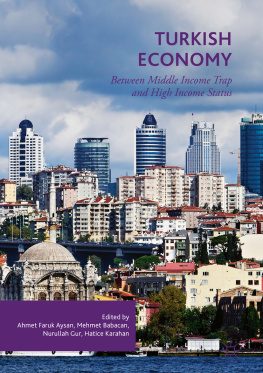The Economy in the 1980s: A Program for Growth and Stability
THE ECONOMY IN THE 1980s: A PROGRAM FOR GROWTH AND STABILITY
Michael J. Boskin, Editor
George F. Break
John T. Cuddington
Patricia Drury
Alain Enthoven
Laurence J. Kotlikoff
Ronald I. McKinnon
John H. Pencavel
Henry S. Rowen
John L. Scadding
John B. Shoven
James L. Sweeney
David J. Teece
Institute for Contemporary Studies
San Francisco, California
First published 1980 by Transaction Publishers
Published 2018 by Routledge
2 Park Square, Milton Park, Abingdon, Oxon OX14 4RN
52 Vanderbilt Avenue, New York, NY 10017, USA
Routledge is an imprint of the Taylor & Francis Group, an informa business
Copyright 1980 by the Institute for Contemporary Studies.
All rights reserved. No part of this book may be reprinted or reproduced or utilised in any form or by any electronic, mechanical, or other means, now known or hereafter invented, including photocopying and recording, or in any information storage or retrieval system, without permission in writing from the publishers.
Notice:
Product or corporate names may be trademarks or registered trademarks, and are used only for identification and explanation without intent to infringe.
Library of Congress Catalog Number 8080647.
ISBN 13: 978-0-9176-1639-6 (pbk)
ISBN 13: 978-0-8785-5399-0 (hbk)
CONTENTS
MICHAEL J. BOSKIN
MICHAEL J. BOSKIN
JOHN L. SCADDING
JOHN H. PENCAVEL
DAVID J. TEECE
JOHN T. CUDDINGTON
RONALD I. McKINNON
JOHN B. SHOVEN
GEORGE F. BREAK
MICHAEL J. BOSKIN
LAURENCE J. KOTLIKOFF
HENRY S. ROWEN
JAMES L. SWEENEY
PATRICIA DRURY
ALAIN ENTHOVEN
MICHAEL J. BOSKIN
MICHAEL J. BOSKIN
Professor of Economics, Stanford University; Director, Program on Social Insurance Research, National Bureau of Economic Research
GEORGE F. BREAK
Professor of Economics, University of CaliforniaBerkeley
JOHN T. CUDDINGTON
Assistant Professor of Economics, Stanford University
PATRICIA DRURY
Research Associate, Graduate School of Business, Stanford University
ALAIN ENTHOVEN
Marriner S. Eccles Professor of Public and Private Management, Graduate School of Business; Professor of Health Care Economics, School of Medicine, Stanford University
LAURENCE J. KOTLIKOFF
Assistant Professor of Economics, Yale University
RONALD I. McKINNON
Professor of Economics, Stanford University
JOHN H. PENCAVEL
Professor of Economics, Stanford University
HENRY S. ROWEN
Professor of Public Management, Graduate School of Business; Director, Stanford International Energy Program, Stanford University
JOHN L. SCADDING
Economist, Federal Reserve Bank of San Francisco
JOHN B. SHOVEN
Professor of Economics, Stanford University
JAMES L. SWEENEY
Professor, Engineering-Economic Systems; Director, Energy Modeling Forum, Stanford University
DAVID J. TEECE
Associate Professor of Business Economics, Graduate School of Business and Department of Economics, Stanford University
In the decade of the 1970s the U.S. economy experienced its worst performance in four decades. Rising U.S. inflation and stagnant productivity growth were responsible for the worst economic performance of any Western country.
The institute has published a number of studies on specific economic problemson energy, planning, health care, tax reform, international trade, and other subjects. This is our first attempt to present an integrated view of the economy as a whole, looking back at serious problems experienced in the 1970s as part of fashioning a systematic statement of what reforms are necessary to restore to the U.S. economy the growth and stability of prior decades.
Michael J. Boskin was the logical choice to organize this project, having edited two previous institute studies, The Crisis in Social Security (1977) and Federal Tax Reform (1978). For the purpose he recruited a number of past contributorsGeorge F. Break, John T. Cuddington, Alain Enthoven, Laurence J. Kotlikoff, Ronald I. McKinnon, Henry S. Rowen, John B. Shoven, and James L. Sweeney, in addition to new institute authors John L. Scadding, John H. Pencavel, Patricia Drury, and David J. Teece.
As part of the project, we organized a conferencefollowing a format developed in our recent national security studyat which the authors could exchange ideas about chapters and topics; these discussions, elaborating and refining the issues considered, appear at the end of most of the chapters and provide interesting supplementary material.
In addition to the formal authors, we would like to thank A. Lawrence Chickering (Executive Director of the institute), Leif Olsen (Chairman of the Economic Policy Committee of Citibank), and Caspar W. Weinberger (formerly Secretary of Health, Education, and Welfare and head of the Office of Management and Budget) who also participated in the discussions.
The economy will almost certainly be the central issue in the coming presidential election. It is clearand in fact, universally acknowledgedthat the U.S. economy is going through its most severe test since the Great Depression. Restoring growth and stability to the economy must be a top priority for the next administration. We think this book presents a compelling statement of reforms that are necessary to prevent continuing economic distress and to restore the long-term growth which the United States has enjoyed for most of its history.
H. Monroe Browne
President,
Institute for Contemporary Studies
June 1980
San Francisco, California
MICHAEL J. BOSKIN
Economic growth rate and the 1970s. Changes in the labor force. Problems with inflation. Saving and investment. Overseas investment incentives. Government and economics. The discontented.
The U.S. economy is at a crossroads in its history. In the decade ahead a myriad of interrelated private and public policies will shape the future of our economy and society for the decades to come. Perhaps unknowingly, we will shape an economic environment which either will continue to take us down the road of high inflation, sluggish real economic growth, and periodic disruptionwith all the dangerous social consequences such a situation impliesor we will begin to unravel the disincentives which obstruct steady economic progress and will restore an environment in which a continuously expanding ability to produce goods and services will allow most of our citizens continuous gains in their standard of living while meeting the needs of the less fortunate in our society with minimum social disruption. Following is a summary of the recent performance of the U.S. economy together with a statement of emerging issues, policies, and problems which it is likely to confront in the coming decade and beyond.
THE RAPIDLY CHANGING ECONOMY
By any yardstick, the performance of the U.S. economy in the 1970s was abysmal. It was our worst decade since the 1930s. While this is revealed in a variety of commonly used statistics to describe the overall performance, many of these statistics have a very different interpretation when placed against the backdrop of a rapidly changing economy.



